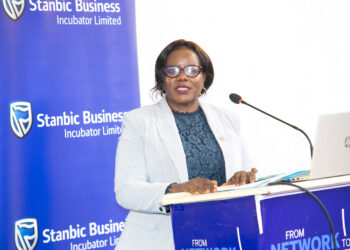Open Letter to Mr. Klaus Schwab, Executive Chairman, the World Economic Forum (WEF)
Dear Sir, in your annual competitiveness reports, you rank Rwanda very highly. In the Global Competitiveness Index 2014–2015, for example, you ranked Rwanda 62nd out of 147 economies. According to you, Rwanda is one of Africa’s most competitive economies and the top performer in East Africa?—?well ahead of Kenya ranked 90th, Tanzania and Uganda, ranked 121st and 122nd, respectively.
Mr. Schwab, these rankings are questionable, not least because Rwanda is heavily dependent on its neighbors from which it imports most of its basic needs as well as foreign investment. For example, four out of six companies listed on the Rwanda Stock Exchange are Kenyan. Further, Rwanda’s economy is by far the smallest compared to its neighbors in terms of gross domestic product (GDP) and per capita income as indicated by the 2015 World Bank data:
- Kenya’s GDP was $63,398 with a GDP per capita, PPP (current international $) of $3,082.5.
- Tanzania’s GDP was $44,895 with a GDP per capita, PPP (current international $) of $2,667.3
- Uganda’s GDP was $26,369 with a GDP per capita, PPP (current international $) of $1,825.3.
- Rwanda’s GDP was $8,095 with a GDP per capita, PPP (current international $) of $1,758.7.
Even when looking at the factors WEF supposedly measures to determine its competitive rankings, namely, institutions, infrastructure, and education and health; there is no way that Rwanda outperforms its larger neighbors, least of all, in the state of economic infrastructure as I comprehensively demonstrate in my new book, Kagame’s Economic Mirage.
Dear Mr. Schwab, I now know where your problem is?—?it is in the method you use to draft your competitiveness report, or more precisely, what you term “partner institutes” that provide you the data. This is how you explain the importance of your partner institutes:
The World Economic Forum’s Global Competitiveness and Benchmarking Network is pleased to acknowledge and thank the following organizations as its valued Partner Institutes, without which the realization of The Global Competitiveness Report 2014–2015 would not have been feasible:
In the case of Kenya, your partner institute is Kenya Institute for Development Studies, the University of Nairobi. In Uganda, your partner is the Uganda Kabano Research and Development Center. In neighboring Burundi, your partner institute is the Burundi University Research Centre for Economic and Social Development (CURDES), the National University of Burundi.
And which institute do you partner with in Rwanda? In the 2014–2015 Competitiveness Report, you cite the Rwanda government itself through Rwanda Development Board (RDB), and its then CEO Valentine Rugwabiza. Your 2013–2014 Report says that your partner institute was RDB headed by the Acting CEO Claire Akamanzi. Your latest report?—?2015–2016, cites RDB and its CEO Francis Gatare. That you also cite Private Sector Federation does not help either?—?that, too, is government-controlled. In any event, Rwanda’s private sector is dominated by the ruling party’s Crystal Ventures Ltd, and therefore, unlikely to provide an independent view on Rwanda’s realities.
We can make two possible conclusions on why WEF chose a different research method for Rwanda that is sharply different from the rest of East Africa. Either WEF is an innocent victim tricked into allowing an intellectual conflict of interest to evolve, whereby a government ranks itself?—?as opposed to engaging a neutral and independent research institution. Or WEF is a willing partner in President Paul Kagame’s delusions of grandeur of having built an African economic lion.
Either way, Mr. Schwab, you became Kagame’s loudspeaker. Please find a independent researcher to supply you credible economic data on Rwanda, if that is possible under a totalitarian state that controls anything that moves.
Source:https://medium.com/@david.himbara_27884/how-the-world-economic-forum-became-a-partner-in-kagames-delusions-of-grandeur-5f937eb24b37#.8bybd9s13
Do you have a story in your community or an opinion to share with us: Email us at editorial@watchdoguganda.com











